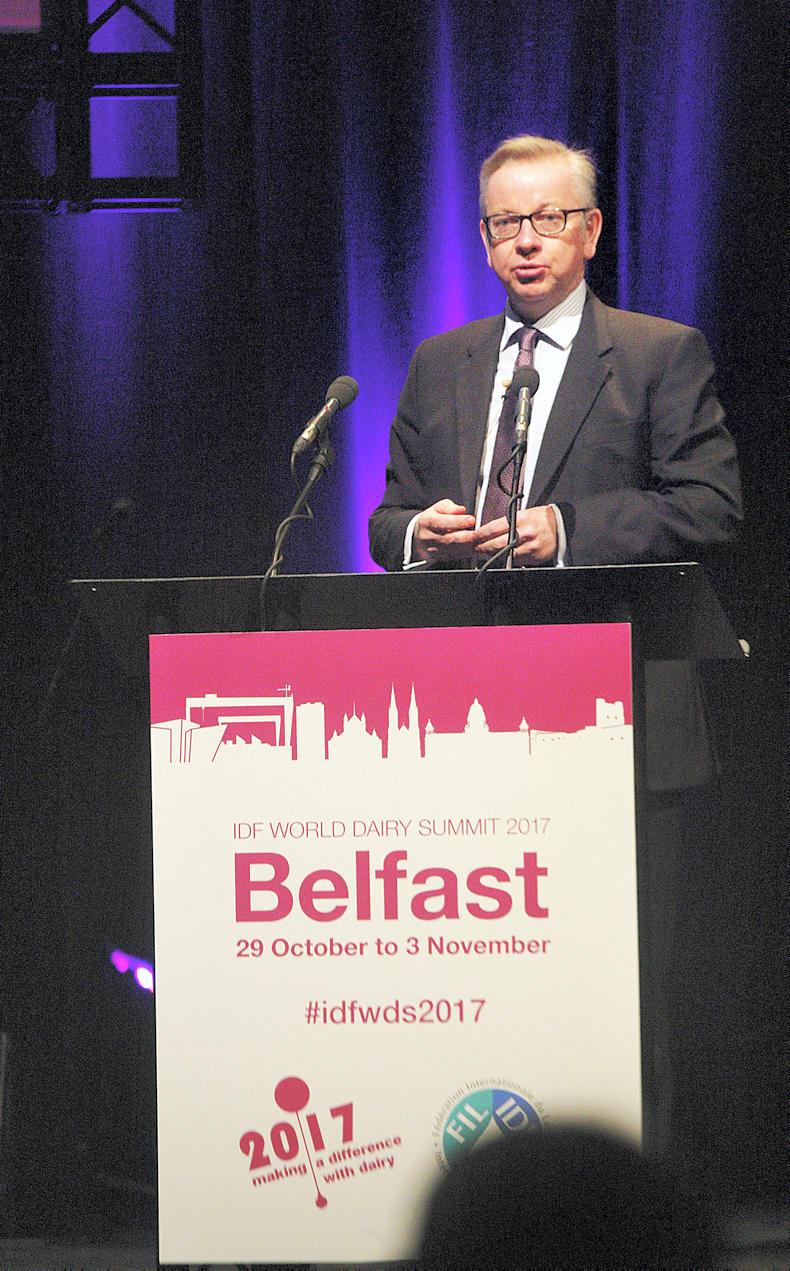If the Bord Bia meat seminar is the big event that announces the start of a new year in Ireland, its equivalent in Britain is the Oxford Farming Conference.
It has been joined in recent years by what is titled as the Real Oxford Farming Conference, which is held nearby and is characterised by being more environment-focused.
The future of British food is in quality and provenance and traceability and competing at the top of the value chain
This year, the minister who is responsible for farming in the UK, Michael Gove, spoke at both conferences and delivered a message tailored for his respective audiences.
At the real farming conference, the minister told delegates: “The future of British food is in quality and provenance and traceability and competing at the top of the value chain.”
His focus on Britain being at the top of the value chain suggests that post-Brexit the UK is likely to continue alignment with EU in terms of production, welfare and environmental standards.
It reinforces the agreement between the UK and EU in December on phase one of the Brexit negotiations in relation to keeping a seamless Irish border.
TTIP
The minister also referenced the protests against Transatlantic Trade and Investment Partnership (TTIP), the trade negotiations between the EU and US which stalled in 2016.
This, he said, showed the need to have public support otherwise it would be impossible to force an agreement through Parliament.

Michel Gove, UK Secretary of State for Environment Food and Rural Affairs, at the World Dairy Summit in the Waterfront Hall, Belfast.\ Houston Green
If this policy is carried through post-Brexit it is positive for Irish and UK farmers. Essentially, there are two major global standards in relation to agri-food production, one being the US interventionist model and the other being the EU preventative model.
In the simplest terms, the US adopts a more industrialised version whereby meat is processed rapidly without particular attention to contamination of the carcase in abattoirs.
At the end of the line, and again in the cutting and packing stage, carcases are washed with a suitable acid that removes any contamination that may have occurred.
Europe
In Europe, there is an hostility to the widespread use of acid in the processing stage which is similar to the policy of not using growth-promoting hormones.
There is no science that suggests there is any risk from use of acid in the wash, just as there is no science that suggests there is anything wrong with using growth-promoting hormones.
However, the EU position is that meat processing has to be carried out in a way that prevents any cross-contamination.
Minister's position
If the UK sticks to the position outlined by the minister in Oxford, it will greatly diminish the possibility of the UK concluding a trade deal with the US once it leaves the EU.
When the US commerce secretary, Wilbur Ross, visited the UK in November, he said the UK should avoid “unnecessary regulatory divergences” with the US.
He was critical of what he considers non-science-based EU rules and it was clear that if the UK continued with these standards, it would hinder a US-UK post-Brexit deal.
If the UK continues the path suggested by the minister at Oxford, it is good for Irish farmers but likely to frustrate the ambitions of those who want a complete break between the UK and the EU. It is likely that this debate will continue.
Gove ‘absolutely confident’ of tariff-free access for Irish beef post-Brexit
Oxford Farming Conference: US seeks to do more trade with UK






 This is a subscriber-only article
This is a subscriber-only article









SHARING OPTIONS: